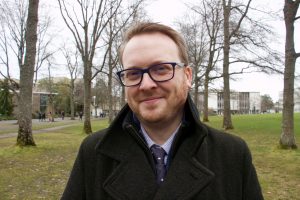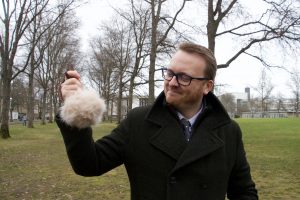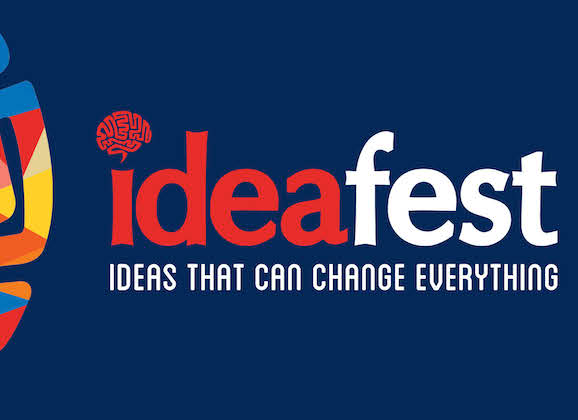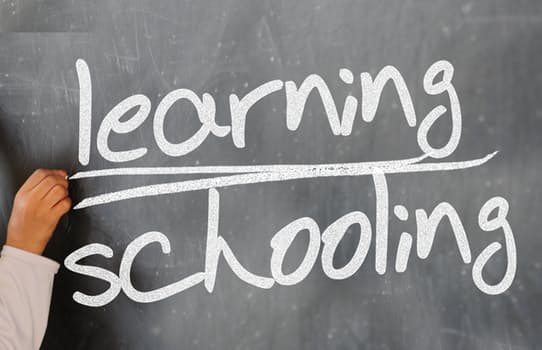To Boldly Learn: The Sociology of Star Trek
I recently interviewed PhD candidate Edwin Hodge about his soon-to-come course called “The Sociology of Star Trek” (SOCI 390). As a huge Trekkie I was obviously interested to learn more about what this course will be like. If you are also a lover of the shows or have never even seen the show I highly recommend taking a peek at what this course can offer you. Live Long and Prosper, readers. 🖖
What inspired you to create this course?
“It’s a convergence of two things: one, I’m a massive nerd, not just for Star Trek, for all the nerd things, every of the nerd things. Also, it is a recognition that most of the courses on offer in the department tend to focus on more traditional sociological issues without a lot of engagement in pop culture.
The draw of doing a Star Trek course was that it is clearly a pop cultural phenomenon that’s been around for fifty years. It also provides an interesting vehicle through which to examine sociological concepts. So rather than ‘here are the topics we are going to talk about and here are some randomly grabbed examples,’ Star Trek is instead one big example we can use throughout the semester to plug in these different sociological concepts in order to get a different view on how to apply sociology to pop culture phenomena.”
Is this course accessible to students with little or no experience with Star Trek?
“You don’t have to be a die-hard. If you know the basics that’s fine, if you don’t know anything I think it’ll be fine too. The idea for the course is if you don’t know anything about Star Trek you’re going to learn, especially because we are going to screen a couple of important episodes and are going to talk about specific characters or specific story arcs and through that there will be some background given.
If you can’t tell the difference between a Vulcan and Romulan you’re going to learn because they represent two very different things. So no, you don’t need to be a die-hard, you just need to be interested in learning in a different kind of way. If you come into it a blank slate, great, because you don’t have any preconceptions and you may have some insights into the ways we examine Star Trek that I might not.”
Will this course bring in a gendered and feminist analysis of the show?
“I think it can’t help but. I am a feminist so most of my own work comes with this perspective. It will absolutely draw on intersectional analyses. Some parts will be looking at critical whiteness studies, critical race studies, gender studies, and gender theory because we’re talking about the ways in which gender present themselves throughout that show.
Uhura wasn’t the first black person in a position of power. There were others, but she was among the first. She was one of the first black women who was not just there. She was an officer, she was a lieutenant, a bridge officer on a flagship of the Federation in the 1960s. Sulu was a helmsman and central character too. You have to be able to look at this show in a gender-based and intersectional way in order to really appreciate a lot of the stuff that was happening in Star Trek. I don’t think that there could be any other way.”
Will any films or episodes of the show be shown?

USS Enterprise NCC-1701
“Yes, there are going to be a few, probably not movies in their entirety because they’re too long but certain episodes I think are going to be important. I’m a Next Generation fan so we will almost certainly be screening ‘Drumhead’ from season 4. This episode looks at the rise of paranoid, conspiratorial thinking. It is basically a retelling of McCarthyism, looking for enemies threatening the fabric of the Federation which at the start of the Trump era has a lot of relevance.
We might look at ‘The Outcast,’ which is another Next Generation episode. The episode itself was a treatment of the emerging gay rights movement in the United States but it could just as easily be used to look at trans rights or even to look at immigration, how we treat the Other. We will probably look at a couple of original series episodes like ‘Plato’s Stepchildren,’ which had the first televised interracial kiss. These are going to matter.”
Who is your favorite Star Trek character and which is your favorite series?
“Next Generation is my favorite series. I have really developed an appreciation for both DS9 and Voyager lately. I’ve been looking at Voyager again as sort of an early feminist based or feminist driven series which makes me appreciate it a lot because Janeway when you get right down to it is feminist as f***, a sort of white liberal feminism but clearly she is a progressive feminist voice. In the late nineties on cable that was a thing that was very uncommon.
I love Data. Data’s fantastic, mostly because Brent Spiner nails that character. I like Troy. I wish they had done more with her… I guess it’s more accurate to say I don’t have a favorite character, I have favorite relationships and favorite sorts of arcs of different characters.”
Do you have a final message for those interested in the course?
“We know it’s going to be Wednesday nights, we know it’s going to be a 3 hour course. There will be a minimal amount of discipline specific jargon. Most of the time we will use plain language in discussions. The idea is that it’s a course that ought to appeal to non sociologists.
This also isn’t just a course for Star Trek fans. Star Trek, although central to the course, is not the most important component. This is for people for whom if you’ve ever wanted to learn about or talk about fandoms, if you ever ask the question of who owns things like Star Trek in a world where shipping and slashfic and fan-created movies are out there. If you want to ask those questions, it’s going to be the kind of course for you. It’s for people who want to experience sociology in a totally different way.”
🖖






He may want to consider screening “Let this be your last battlefield” from season 3 of the original series. It gives great examples of racism, war, and extremism. Sounds like a fun course. Wish I was a student there 🙂
Great idea! I will pass it on. Thank you 🙂